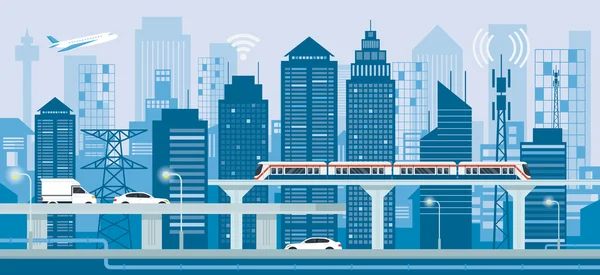Transportation plays a vital role in connecting people, goods, and ideas across the globe. However, the efficiency and effectiveness of transportation systems are influenced by a myriad of factors. In this blog post, we will delve into the multifaceted aspects that shape and impact transportation, exploring the interplay between technological advancements, infrastructure, economic factors, environmental concerns, and social dynamics.
- Technological Advancements:
The rapid pace of technological advancements has revolutionized the transportation industry. Innovations such as autonomous vehicles, electric cars, and high-speed trains have significantly improved transportation efficiency, safety, and sustainability. Additionally, advancements in communication technologies have facilitated real-time traffic management systems, enhancing overall transportation operations. - Infrastructure:
The quality and adequacy of transportation infrastructure are crucial determinants of transportation efficiency. Well-maintained roads, bridges, ports, airports, and railways are essential for seamless movement of goods and people. Insufficient infrastructure can lead to congestion, delays, and increased transportation costs, negatively impacting economic growth and social well-being. - Economic Factors:
Economic factors play a pivotal role in shaping transportation systems. Factors such as trade patterns, market demand, and economic policies influence the volume and nature of transportation activities. For instance, the growth of e-commerce has led to increased demand for last-mile delivery services, prompting the development of innovative logistics solutions. - Environmental Concerns:
The environmental impact of transportation cannot be overlooked. Greenhouse gas emissions, air pollution, and noise pollution are significant challenges associated with transportation. Governments and organizations are increasingly focusing on sustainable transportation solutions, including the promotion of electric vehicles, the development of public transportation networks, and the implementation of eco-friendly practices. - Social Dynamics:
Transportation is deeply intertwined with social dynamics, influencing patterns of urbanization, accessibility, and social equity. Accessible and affordable transportation options are essential for ensuring equal opportunities for all individuals, regardless of their socioeconomic status or physical abilities. Additionally, transportation systems can shape urban development, influencing the location of businesses, residential areas, and public amenities.
Conclusion:
Transportation is a complex and multifaceted system influenced by various factors. Technological advancements, infrastructure, economic factors, environmental concerns, and social dynamics all play critical roles in shaping transportation systems. Recognizing and understanding these factors is crucial for policymakers, industry professionals, and individuals alike, as we strive to develop sustainable, efficient, and inclusive transportation networks for the future.

